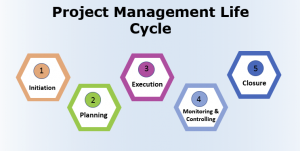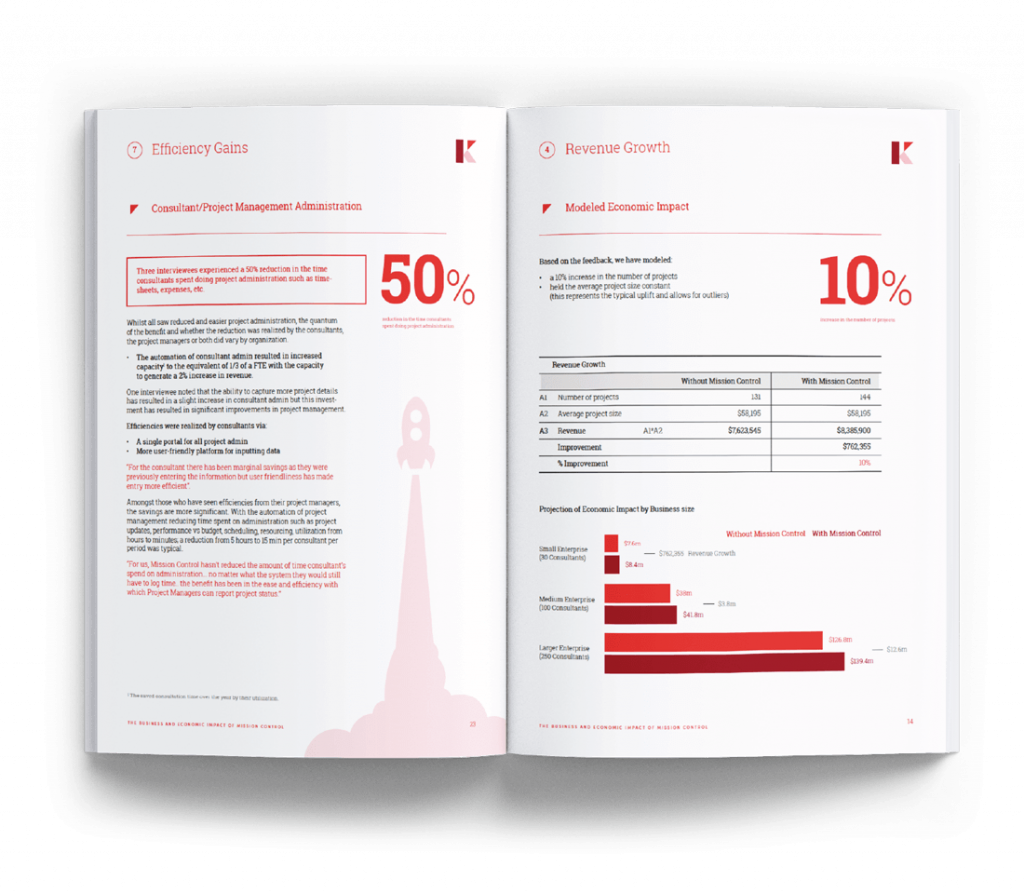The Project Management Life Cycle is basically the life of a project, from start to finish. It includes every step of delivering a project—starting at the very early stages of planning a project and ending with delivery and all the steps taken in between.
Project Management Life Cycles are fundamental to the management of project-work as they provide the framework for all the stages a project needs to go through to take a project from concept to reality in an organised and orderly fashion.
According to the A Guide to the Project Management Body of Knowledge (PMBOK Guide) by the Project Management Institute, the Project Management Life Cycle is made up of five key phases:
- Initiation
- Planning
- Execution
- Monitoring and Control
- Closing

Ultimately the five stage framework helps ensure project managers can complete a project successfully. Here’s a more in-depth look at each of the phases.
The Project Management Life Cycle
Phase 1: Initiation
The very first phase of the life cycle is Initiation. This is where you define what needs to be done for the project.
Initiating a project starts by kicking off a project with your client and your team. You will work closely with your client to turn what may sometimes be an abstract idea into a meaningful business goal.
As the project manager, it will also be your responsibility to determine the need for the project and make sure it’s aligned with business objectives. You will set the project charter which will outline the vision, constraints and goals for the project.
During this phase, you will also define a high level project scope, deliverables, budget and resources so you can start developing an idea of what’s needed in order for the project to be successful.
Phase 2: Planning
Next, we move on to Planning, which is an essential part of any project management life cycle. This is all about how to actually do what needs to be done.
Planning is a critical phase as this sets out the roadmap your project will follow. Without a good project plan, you may risk delayed delivery, budget blow outs or even just not having adequate resources to deliver the project as planned.
Planning is where you will define all the work that needs to be done for your project. Depending on the project management methodology you follow, this phase may take up at least half of the entire life cycle of your project.
You will also take the project goals and expand on them in the planning stage so you can determine what it will take to achieve every goal. You will also need to outline project activities, tasks, dependencies, and time frames as well as costs—the three fundamental components of the planning process.
You will need to set a timeline for each deliverable and set up a communication schedule for all project stakeholders.
Other things that project managers will need to consider during the planning phase include: risk management and mitigation, change management as well as effective resource planning and utilization.
Phase 3: Execution
In the very middle, we have Execution. This is where the planning turns into action and the actual work happens for the project.
As your team begins to do the work involved, the project manager will need to establish good workflows for the team to effectively work together and collaborate. You may also need to set up time tracking measures in place to effectively track your billable utilization and overall productivity.
A project management tool like Mission Control can make collaboration and teamwork for your projects a much easier and streamlined process. If you work in a remote team (as many of us do now), even asynchronous communication becomes easier and enables better collaboration.
Phase 4: Monitoring and Control
The next phase of any project management life cycle, is Monitoring and Control. While this is phase four, this often runs concurrently with Execution, as this stage is all about keeping a project on track.
Monitoring and control is all about tracking your project against Key Performance Indicators and ensuring you are on track and on budget for delivery. As mentioned in the planning phase, you’ll want to track your resources, your productivity, your cash flow and anything else that could potentially affect the success of your project.
Project management tools can help simplify the monitoring phase by pulling in relevant data and delivering reports that make it easier to monitor project effectiveness. For example, with Mission Control you can set up reports to monitor your timesheets and see if staff are spending their time productively.
You can compare to this your original project plan to ensure everything is on track. If not, you will then need to make adjustments along the way to bring the project back on track.
Phase 5: Closing
The final phase is closing. As the name suggests this phase involves everything that needs to be done at the close of a project.
As the project manager, your job is to deliver the project to your clients. It’s time to close your contracts and complete any pending paperwork.
Most important of all, hold a closing or reflection meeting. This can be a very rewarding meeting as you and your team reflect on the project and celebrate your wins, recognize your team members for their work and also reflect on what went wrong.
Finally, you may like to create a written project completion report. This will include all your learnings and outcomes, along with actionable advice to help you know how you can do better for the next project.
If you need support building your Project Management Life Cycle, or are keen on using software that will help you get there, speak with our Mission Control Product Specialists today.





